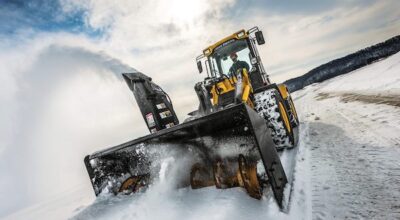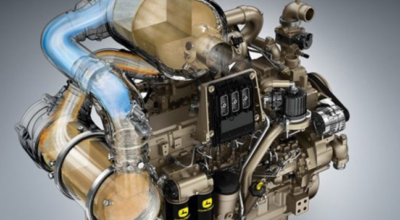Before winter is in full swing, it’s essential to learn the ins and outs of starting a cold diesel engine. Doing so is essential to keeping your engine in working order for seasons to come. That being said, here are six tips for starting a cold diesel engine and maintaining your equipment over time.

1. Do Not Underestimate Warm-Up Time
Giving your cold diesel engine time to warm up is essential. Ideally, you should always allow your equipment to warm up for at least five minutes before operating. Failing to do so can make the engine work harder than necessary.
2. Consider Heating Options
There are several options available to you when it comes to heating your machinery and keeping it running smoothly. An electric block heater, for instance, can heat up the coolant in-stream. A diesel-fired coolant heater can allow you to heat up your engine in an area where electricity may not be readily available. Glow plugs can help you ignite cold fuel, and ether can heat the fuel air mixture inside of a large-sized engine.
3. Keep Your Diesel Exhaust Fluid Thawed
If you intend to add DEF to your machinery at a later time, make sure that it is kept at a temperature above 12 degrees Fahrenheit to prevent it from freezing. Freezing does not affect the uptime of your equipment, but having the DEF prepared can ensure that it’s ready to be dispensed when necessary.
4. Address Frozen Fuel
In the event that your fuel has frozen or gelled together, you’ll want to change the fuel filter and warm the fuel before you start the engine, according to the University of Tennessee Agricultural Extension Service. This will prevent the frozen fuel from blocking the flow from the tank to the injector pump.
5. Keep Your Engine in a Warm Area
If possible, store your diesel engine in a warm area where it will not be exposed to elements, such as sleet and snow. Keeping the engine in an area where the temperature is even a few degrees warmer can make it quicker to warm up.
6. Make Sure Your Fuel Tank is Full
Condensation in a fuel tank can eventually freeze and cause just as many problems as gelled fuel. Try to keep your fuel tank full to eliminate any space for condensation to build up in the cold weather. A winter diesel fuel additive can potentially reduce the risk of your fuel freezing up as well.
If you enjoyed this post or want to read others, feel free to connect with us on Facebook, Twitter or Google+!


